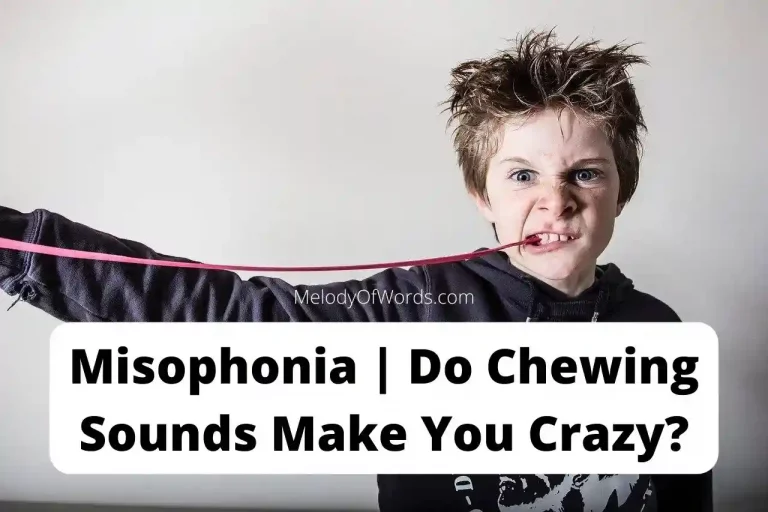12 Surprising Benefits of Music Therapy on your Body, Mind, and Soul

Music has been an integral part of our culture, no matter where you go. You’ll always find people jamming into their traditional folk music, or tuning on to their favourite genres be it Indie, classic, jazz, hip hop or contemporary.
Most of us will agree that we use music to accompany us while doing household chores such as cleaning, and washing dishes.
While others, enjoy playing our favourite tracks while they scrub off the dead skin in the shower. It’s a therapeutic experience, where we wash off our old self (the yester self), and embrace our new self— what we are today, while playing our favourite music.
I am sure, I am not the only one, who enjoys feeling the vibrations of spiritually calming meditative music while taking a shower.
Importance of Music Therapy
Music has substantial effects on our mind and body, such as elevating our mood, and decreasing pain and anxiety. It triggers the release of happy hormones, stimulate the immune system, improve focus, influence heart rate, and breathing.
Research provides evidence that music can benefit our physical, and mental health in numerous ways.
By listening to music you can even strengthen the emotional and cognitive centers of the brain. It has the power to heal the body, mind, and soul. That is why music therapy is in vogue as it is one of the effective ways to deal with mood disorders.
Music therapy offers a total brain workout, and this fact is backed by science. As research suggests that music reduces anxiety, blood pressure, and pain. It also improves sleep quality, mood, mental alertness, and memory.
About Music Therapy
The American Music Therapy Association describes music therapy as the use of music in hospitals, rehab centres, outpatient clinics, nursing homes, schools, correctional facilities, and substance use programs to help treat patients with medical, physical, emotional, and cognitive needs.
Music therapy is being widely used to enhance conventional treatment for a variety of illnesses and diseases. It is especially helpful in dealing with stress, anxiety, to the management of pain and depression, and enhancement of functioning after degenerative neurologic disorders.
To derive the overall benefits of the music therapy on the mind and body, the association advices to seek the appointment with a professional music therapist. Check this registry to find a board-certified therapist in your area.
Also Check: 8 Stress Relieving Outdoor Activities that’ll bring you closer to Solitude
The Benefit of Music Therapy on your Mental Health
Music can keep your mental health in check, and neurological researchers have found that listening to music triggers the release of several neurochemicals. Which plays an important role in the smooth functioning of the brain, and also on our mental health. Such as:
- Dopamine, a chemical associated with pleasure and “reward” centers,
- Stress hormones like cortisol,
- Serotonin and other hormones related to immunity,
- Oxytocin, a chemical that fosters the ability to connect to others.
Music can stir our emotions, and make us feel differently. As it has a direct effect on our mood like the feeling of love, and devotion we experience while listening to a spiritual song. Or the feeling of sacrifice that tears us up while listening to our country’s national anthem.
Therefore, we all like to listen to music, as it’s therapeutic. Studies suggest that music therapy can improve the quality of life, and social connectedness for people with schizophrenia.
So without further ado let’s check out some of the surprising benefits of music therapy.
15 Surprising Benefits of Music Therapy on your Body, Mind, and Soul

1. Music therapy can help Improve some of the Symptoms of Depression:
Listening to music promotes wellness, improves or changes vital signs of depression, and mood disorders. When you listen to happy music, there are strong connections from the amygdala to the dopamine driven nucleus accumbens (addiction center).
This dopamine center responds to both happy and fearful signals, and is often correlated with stimulation of goal directed behaviour.
A research conducted in 2017 observed that listening to music, particularly classical coupled with jazz music had a positive effect on patients suffering from depression. As it helped to improve some of the symptoms of depression, especially when they were listening to the sessions conducted by board certified music therapists.
Don’t worry if you aren’t a fan of jazz or classic music because group percussion sessions have proved to have the same effects. It was found in the research that drum circles also had some great benefits on people dealing with depression.
Depression patients should avoid listening to Sad and Melancholic tunes:
Researchers have cautioned depression patients against listening sad songs, and melancholic tunes. Since it increase the symptoms of depression, especially when you feel like withdrawing socially. So do reconsider the genres of music to listen while combating the blues.
Also Check: 12 Hard Hitting Life Lessons Loneliness & Isolation is Bound to Teach You
2. It decreases stress and anxiety:
Research has found that listening to music can relieve stress by triggering biochemical stress reducers.
A study initiated by the Montreal Neurological Institute and Hospital at McGill University found that, listening to highly pleasurable music releases the same reward neurotransmitter — dopamine — in the brain that is associated with food, drugs, and sex.
The good thing is that everybody can benefit from music therapy. Listening to soft pop, classical, and nature sounds such as— rain, and chirpings of birds can help you to calm your nervous system, relax and heal your soul.
3. Music elevates our mood and makes us happy:
Listening to music can boost the production of dopamine in the brain. Dopamine is also called the happy hormone, the increased production of which helps in relieving stress, anxiety, and depression. People who have mood disorders can use music therapy to uplift their mood.
Researchers have found that music has the power to change our mood, and regulate our emotions by helping us to process our feelings in a healthy way. So whenever you feel low or have a rough day at work, play some soft soothing music to elevate your mood.
4. It keeps your heart healthy:
A study posits that when music is played it makes the blood flow easily. This can help in reducing heart rate, lower blood pressure, decrease cortisol (stress hormone) levels, and increase serotonin and endorphin levels in the blood.
Music makes you want to move your body and groove, and the benefits of dancing are well documented. Scientists have shared that listening to music can alter your breath rate, your heart rate, and your blood pressure, depending on the music’s intensity, and tempo.
5. Music Therapy stimulates memories:
Patients dealing with Alzheimer’s disease or dementia have shown significant improvement from music therapy, as it can relive some of its dreaded symptoms. It can calm and relax an agitated patient, improve their mood, and help in opening communication in patients.
Mayo Clinic states that although music cannot reverse the memory loss of Alzheimer’s patients but it can slow cognitive decline. Furthermore, it can help patients dealing with mild or moderate dementia to recover salient memories from their lives.
6. Music encourages learning:
Who would have thought that the leisure activity of listening to music can help us learn faster? But according to doctors and scientists listening to music can lead to better learning.
Many scientists have long been sharing the benefits of music therapy. They have disclosed that listening to music engages your brain—they can see the active areas light up in MRI scans.
Doctors at Johns Hopkins recommend that music therapy can stimulate your brain. This makes sense why our pre-school teachers used to encourage us to learn alphabets and poems while singing.
Interesting Fact related to Classical Music and the Brain:
This techno age might have resulted in a shift of taste in music from classical to techno and EDM. But we mustn’t ignore the soothing, structural, and slow tunes of classical masterpieces of Beethoven, and Mozart, that to-this-day cast a spell on the listeners.
If you don’t agree with me then, hear out this new info, that I have sourced from the internet, which has opened the Pandora box of secrets for music lovers.
Music therapy can improve memory and this fact has been backed by a reliable source, which shares the result of a research in which different groups of people were assigned a task. Wherein they were asked to read and recall short lists of words.
Those who were listening to classical music were easily able to memorize and recall words, while the non-listeners or those working with white noise failed to reach the bar.
Sad news for Rock music lovers:
A study initiated by the Scripps Howard News Service revealed that exposure to rock music causes abnormal structured in brain region associated with learning, and memory. The study further pointed that classic is essentially harmonic as compared to rock music that is rhythmic.
7. Music Therapy decreases pain perception:
Another advantage of listening to music or music therapy is it helps in reducing the pangs of pain. Therefore, when people go through toxic breakups, or deal with other mentally straining problems. They surrender themselves to music, and start listening to tracks that conveys their feelings.
As it mirrors their situation, what they are going through or facing in life. This in turn helps them to grieve and pour out their sorrow by welling tears. And also helps them to overcome the difficult time, and gives them the strength to start over.
Music therapists who specialize in music therapy use music as a medium (meta-analysis) to relieve pain in inpatient and outpatient settings.
A 2016 multiple analysis of over 90 scientific studies suggested that, music helps people manage both acute and chronic pain better than medication.
Therefore, music therapy can be effectively used to manage, and ease pain especially in geriatric care, intensive care, or palliative medicine.
Also Check: Suicide Contagion: Is Media exposure the Reason behind more Suicide cases reported after Celebrity Suicide
8. Music can help you to eat less and stay in shape:
Do you know why Porsche café, and restaurants play soft dreamy music in the background in the gloomiest setup? Because it creates an environment that influences you to gorge down your food slowly and consume less food in one sitting.

9. Music can boost your exercise performance:
We all like to blast music while exercising or training for a sport. Since listening to motivational workout tracks kicks us to perform better. As it enhances our performance, and pushes our limit to endure intensive exercise session.
Exercise enthusiasts maintain their personal music list of their favourite inspirational songs, and this study proves they have all the reasons to do so.
A 2020 study proved that exercising with music improves mood, and helps the body to push itself to the limits. While distracting your mind from being aware of the level of exertion, sweat, and toil.
You don’t have to be a world-class competitor to benefit from music therapy:
It’s a no surprise that working out with music leads to longer workouts. A trusted source shares that athletes who listened to high-intensity, fast music during warm-ups were motivated to outperform their competitors.
According to a research syncing your workout music can allow you to give high performance using less oxygen than you did without listening to music. Researchers believe that music acts as a metronome in your body.
10. Music Promotes self-expression:
Listening to calming music helps in accepting our feelings and emotions, which aids our understanding about us, and our environment. It helps us to put our thoughts into words, and give them a deeper and clearer meaning, especially when it comes to expressing your feelings for your loved ones.
11. It decreases fatigue:
Music kills boredom and increases our work efficiency. People who have a desk job will agree that working, while listening to your favourite song not only helps in making the work enjoyable, but also decreases fatigue.
You feel less tired because you stop keeping track of time, and forget that you have been working for so long.
A 2015 Shanghai University research found that relaxing music helps to reduce fatigue, and maintain muscle endurance when people were engaged in a repetitive task.
Music therapy sessions also lessens fatigue in people receiving cancer treatments, and raised the fatigue threshold for people engaged in demanding neuromuscular training.
12. Experimenting with meditative music can enhance your journey to spirituality:
Listening spiritual music, bhajans, kirtans, and chanting mantras have long been a part of ancient Indian culture. Which is said to have similar effects on the brain as meditation to those who listen.
As it helps in driving away obsessive destructive thoughts, and helps in replacing them with positive emotions, that paves way for self-love and self-acceptance.
Studies have found that chanting mantras like ‘Om’ for 10 minutes can repress anxiety and depressive symptoms. This simple mindfulness technique can improve your concentration, and elevate your mood.
Many people who listen to ancient musical chants, instrumental music, or spiritual healing music transcend into a more meditative and peaceful state. They feel like they are deeply touched by the music, and it has casted a spell on them.
The power of music is such that it can provide comfort, peace, and dignity to a patient who is dying:
Ancient Sanskrit mantra such as the Mahamrityunjaya Mantra in said to be beneficial for emotional and physical health. It is practised for purifying karma of the soul at a deeper level.
MahaMrityunjaya Mantra also known as “Rudra Mantra” is found in Rig Veda VII. 59 12, Yajur Veda III.60, Atharva Veda XIV.1.17, Shiva Purana among others. If we go by the ancient Hindu legends, the Mantra was given by Lord Shiva to sage Sukracharya.
Thanks to YouTube that many people can access it for free and listen to it for self-healing and peace.
A user writes, “My family played this while my grandma was slowly passing away in hospital. According to my mother she looked like she was in a peaceful trance.”
Another person wrote, “It has made me realize I have a choice as to what I expose myself to, and what I allow to take up space in my mind and heart.”
Music therapy can help in dealing with chronic pain.
A study conducted on 22 older ambulatory adults diagonsed with knee Osteoarthritis were put into two groups MM (Mantra Meditation) and ML (Music Listening). Each group was asked to practise music therapy for 15-20 minutes twice daily for 8 weeks.
The study revealed that both the group showed greater improvement in overall mood, sleep, mental health, and dealing with knee pain/injury and kinesiophobia (fear of movement). However, the group that was practising mantra meditation benefitted even more.
These findings suggest that both music listening and mantra meditation may be effective in reducing knee pain and dysfunction, decreasing stress, and improving mood, sleep in adults with knee Osteoarthritis.
If you liked 12 Surprising Benefits of Music Therapy then you might enjoy:
- 10 Best Spiritual Songs to Kick start Your day with Positivity
- The Power of Introversion: 8 Qualities of Introverts & How to Benefit from It
- How to Deal with Rejection in Love like a Mature Individual
- 8 Things you shouldn’t do in the Name of Love
- Small Friend Circle Benefits: Why few People choose to have a Small yet Powerful Circle
- Psychological & Emotional Damage Corporal Punishment can Have on Children





